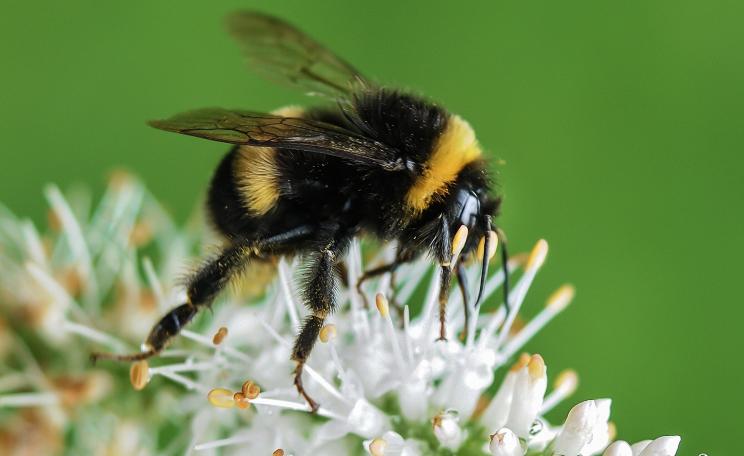-
Conservation bodies active in peatland restoration across the UK were in Westminster last week to explain the vital role of their work in the fight to slow climate change.
A group of organisations met MPs and Peers to highlight the valuable public benefits of healthy peatlands and how restoring and protecting them can help to tackle catastrophic climate change.
Restoration project
Pennine PeatLIFE, a major peatland conservation project led by the North Pennines Area of Outstanding Natural Beauty (AONB) Partnership in collaboration with Yorkshire Wildlife Trust and Forest of Bowland AONB Partnership, hosted the parliamentary reception.
The reception was co-ordinated by the International Union for the Conservation of Nature (IUCN) UK Peatland Programme, and brought together partnerships working across the UK, representing a wealth of expertise and over 100,000 hectares of restored peatlands.
Julian Sturdy MP (York Outer) and Rishi Sunak MP (Richmond) sponsored the event and talked about their visits to Pennine PeatLIFE sites in their own constituencies.
Environment Minister, Thérèse Coffey said: “I was delighted to speak to the Pennine PeatLIFE event. The UK’s three million hectares of peatlands are an invaluable resource in our natural environment, providing carbon storage, clean water, flood mitigation, natural habitats, and land for agriculture and recreation.
“Four large-scale peatland projects across England are benefitting from £10 million of Defra funding, to restore over 6,000 hectares of degraded peatland between now and March 2021. It was great to see the fruits of that investment and meet some of the people behind this essential work.”
Healthy peatlands
The undervalued moorland landscape of upland areas of the UK can capture and store vast amounts of carbon, locking it in to stop it contributing to further climate change.
However if they are left to degrade, peatlands will release their stored carbon into the atmosphere. Dried-out, damaged peat is also vulnerable to fire, as can be seen with the wildfires that have taken hold on moors across the country.
Public benefits of healthy peatlands are not restricted to tackling climate change. Seventy percent of our drinking water comes from upland catchments, they host internationally important biodiversity of plants and animals, and they ‘slow the flow’ of water which can reduce the impact of flooding.
Rob Stoneman, Chair of Pennine PeatLIFE, said: “With the industrial revolution the UK began what Greta Thunberg refers to as a ‘mind-blowing historical carbon debt.’ We think that we should be leading a new industrial revolution, one that reduces emissions and addresses climate change as the biggest challenge humanity has ever faced.
"Healthy peatlands are central to this climate change revolution, and we must continue to invest in their conservation.”
Carbon storage
Rob Brown, owner of Howesyke Farm in the Yorkshire Dales National Park, spoke about his experience as a landowner: “On my farm 950 acres of peatland have been restored for the public benefit.
"Thousands of tonnes of CO2 have been saved from entering the atmosphere and downstream the benefits include cleaner water and reduced impact of flooding.
“We need to create more opportunities for land managers to undertake peatland restoration and support the delivery organisations, such as AONB and National Park teams, through blended public, private and charitable funding solutions.”
Paul Leadbitter, Peatland Programme Manager at the North Pennines AONB Partnership, said: “What many people see when they look at our moorlands are vast expanses of a harsh and relatively inaccessible habitat, seemingly without much growing there.
"However these peatlands and the plants that grow on them are the engines of carbon storage in our upland landscape.”
Innovative practices
Pennine PeatLIFE is funded by the EU LIFE programme with match funding from Yorkshire Water, United Utilities, Northumbrian Water and the Environment Agency.
The North Pennines AONB Partnership and IUCN UK Peatland Programme have also received funding from innovative funders and grant-makers such as the Esmée Fairbairn Foundation to further develop peat restoration programmes in the UK.
The UK Peatland Strategy sets out an ambitious target of two million hectares of peatland in good condition, under restoration or being sustainably managed by 2040.
IUCN UK Peatland Programme Director, Clifton Bain, said: “There is great momentum and expertise in the UK peatland sector and we have made real progress towards our targets. Long-term funding is needed to maintain this momentum and realise the many benefits healthy peatlands provide us with.
“The United Nations General Assembly has declared the next decade the UN Decade on Ecosystem Restoration.
"Restoring degraded ecosystems is a proven measure to tackle climate change and the peatland community in the UK can help meet this commitment through innovative restoration practices and its established ethos of partnership working.”
This Article
This article is based on a press release from the North Pennines AONB Partnership.
Image: Lancashire Peat Partnership.







